WEBINAR: How Technology Can Help Medical-Legal Partnerships Address Social Determinants of Health
As reimbursement policies for telehealth loosened due to the pandemic, more vulnerable and underserved communities were accessing health care services. This provided an opportunity to further utilize technology to address social determinants of health – such as safe and affordable housing, unemployment benefits, and immigration status – through the use of Medical-Legal Partnerships (MLPs).
eHI joined with the Partnership for a Connected Illinois for a discussion on MLPs, how they are addressing social determinants of health, and the importance of continuing utilization of telehealth to best serve vulnerable and underserved communities.
Speakers:

Nichole J. Mirocha, DO
Nichole J. Mirocha, DO is an Associate Professor and Associated Residency Program Director of Clinic Family & Community Medicine with Southern Illinois School of Medicine. She works at the SIU Center for Family Medicine, an FQHC and patient-centered medical home serving the Springfield and surrounding communities. She is a founding member of the Comprehensive Care Clinic, a multidisciplinary care clinic designed for patients with complex medical and social needs. The clinic takes referrals mainly from outside agencies within Springfield which includes but is not limited to Mental Health Court, Springfield Police department, local hospitals, and Community Health Workers. Many of the patients within the CCC have history of significant mental health conditions, live in poverty, suffer from severe chronic medical conditions, and lack the social support needed to thrive. Goals of the CCC ultimately are to improve patient satisfaction and engagement in primary care, reduce utilization of emergency services, and overall improve health and well-being of the population within the Springfield area.

Shelly Skinner
Shelly Skinner is focused on increasing access to justice through technology. She serves as a judge for a local Teen Court that implements restorative justice principles for youth who have been arrested for committing certain criminal offenses. In addition, she is working on establishing a pediatric medical-legal partnership in San Diego. Shelly is a member of Legal Services Corporation’s Emerging Leaders Council, and she holds appointments on the San Diego County Bar Association’s Technology Committee and Legal Ethics Committee. Previously, Shelly worked as a federal attorney for 12 years, handling traditional labor law matters and ethics issues.

Keegan Warren-Clem, J.D., LL.M.
Keegan Warren-Clem, J.D., LL.M., is a Practice Area Manager at Texas Legal Services Center, overseeing the Legal Aid for Survivors of Sexual Assault program, the Crime Victims program, and the Veteran Legal Assistance Program, and directly managing the Medical-Legal Partnerships (MLP) department. Through MLPs at multiple healthcare sites, she works collaboratively with health care providers to improve health outcomes by bringing patient-centered legal and structural expertise into the delivery of health care. An adjunct professor with appointments at The University of Texas School of Law, McCombs School of Business, and School of Design and Creative Technologies, Keegan also challenges students and residents to explore connections between health and law. Currently, Keegan is engaged in research that takes an epidemiological approach to legal interventions as a concrete means for addressing social determinants of health, and she is a 2020 National Academies of Medicine Emerging Leaders in Health and Medicine Scholar. Keegan is a veteran of the Army National Guard and is also a member of the Order of St. Joan of Arc, the highest civilian award given by the Army Armor and Cavalry Associations. In her spare time, she rows crew.

Sara Agate, JD, MPH
Sara is a collaborative leader with a focus on access to justice and healthcare services who brings innovative, inclusive solutions to the table. With over a decade of expertise in healthcare and public health policy and law, and legislative advocacy, her passion for technology has led to noteworthy change in both the public and private sectors.

Candice Stearns, JD
Candice is the Medical Legal Partnership Staff Attorney at Land of Lincoln Legal Aid’s Northern Regional Office located in Springfield, Illinois. She is a graduate of Southern Illinois School of Law. Prior to law school, Candice served as a domestic violence legal advocate with the Macoupin County Public Health Department assisting domestic violence survivors in obtaining orders of protection and accompanying survivors to court proceedings. During her time as a legal advocate, she developed the desire to become an attorney and enrolled in law school. Candice joined Land of Lincoln Legal Aid in 2018, where her practice centered on representing domestic violence survivors in the Northern Regional Office’s ten-county service territory in orders of protection, custody, and divorce matters. Candice transitioned to her role as the Northern Regional Office’s Medical Legal Partnership attorney in July of 2021.
Candice is passionate about helping improve the quality of lives of her clients and the communities she serves. In Fall 2020, Candice received an award from Dove, Inc., located in Decatur, Illinois, in recognition of her compassionate service and commitment to assisting domestic violence survivors in the Macon County community. She serves as a committee member on the Illinois Access to Justice Commission’s Protective Orders Subcommittee in charge of the development, review, and drafting of Protective Orders forms to be published on the Illinois Supreme Court Standardized Forms website. She is an appointed member of the Illinois State Bar Association’s Human and Civil Rights Section Council, a member of the Illinois 6th Judicial Circuit Family Violence Coordinating Council, and a committee member of the Chicago Bar Foundation’s 2021 Legal Aid Recruitment and Retention Study Advisory Committee. Candice is also active in the Sangamon County, Central Illinois Women’s, and Decatur Bar Associations.
This webinar is co-sponsored by

White Paper: Maintaining Quality While Combatting Health Inequity
Health disparities rooted in social determinants of health are regularly linked to social inequities that exist in American society. Should the healthcare industry be taking responsibility for resolving these inequities, and if so, what actions can be taken to lead and encourage improvement? Read Inovalon’s white paper to learn more insight on how your health plan can alleviate health inequities among its member populations.
Clinical Communication and Collaboration: Redefining the Patient Journey for Better Outcomes
Clinical communication and collaboration has always been critical to ensuring the delivery of timely, quality patient care. The COVID-19 pandemic further highlighted the importance of both, providing insights of how providers can apply new strategies and technology for better patient outcomes.
As the pandemic evolved, an added strain was placed on Emergency Departments (ED) with the need to isolate COVID-19 patients from those seeking emergent care and non-COVID-19 care. Minimizing time spent in the emergency department or bypassing the ED altogether along with the suspension of at-hospital elective care became a priority. This caused a shift in the traditional patient journey. There was a heightened interest in virtual assessments and notification systems to improve the flow of patients through emergency departments.
The three case studies outlined in this brief, highlight how technology is being applied in new ways to support the patient journey from pre-arrival to departure.
WEBINAR: Pediatric Patient Matching in an Adult World
The growing demand for health information exchange brings the challenges of accurate patient identification to the forefront, especially for children who often don’t have common identifiers or have non-static demographic information. Patient matching is complicated for adults, so how do we address the unique challenges of patient identity matching in pediatrics?
eHI joins experts from the American Academy of Pediatrics, AHIMA, clinicians and technology leaders to discuss these challenges, including confidentiality concerns around matching children according to parental data and ensuring health data is accurate as children transition from pediatrics.
Speakers:

Susan J. Kressly, MD, FAAP
Fellow
American Academy of Pediatrics

Emily Webber, MD, FAAP, FAMIA
Chief Medical Information Officer
Indiana University Health Riley Children’s Health

Mary Greiner, MD, MS
Medical Director
CHECK Foster Care Center
Associate Professor, UC Department of Pediatrics

Dan Cidon
Chief Technology Officer
Nextgate
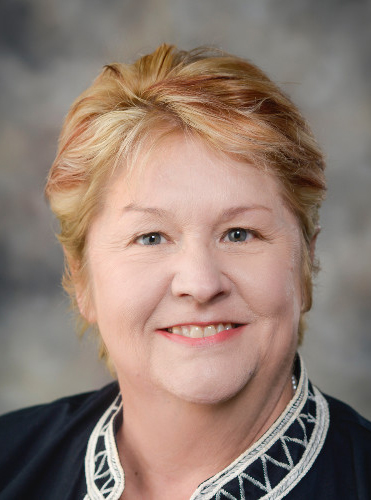
Katherine Lusk, MHSM, RHIA, FAHIMA
Senior Director for Strategic Partnerships
Texas Health Services
Chair, AHIMA

Jen Covich Bordenick
Chief Executive Officer
eHI
Digital Health Equity Summit
In November, eHI will be hosting a Digital Health Equity Summit. Attendees will learn how digital health tools are already being used to bridge geographical issues, language barriers, and affordability gaps, and how robust individual-level data can help health organizations improve patient outcomes. Panels will also explore how institutional practices and policies should change to ensure the inequities in our current health care system are not carried over as it continues to modernize.
You can view the full agenda here.
Data Analytics/SDOH Workgroup
eHI hosts a monthly Data Analytics/SDOH workgroup to hear insights from members who are addressing SDOH needs through innovative solutions. This month will feature experts from Optum.
If you are interested in attending or presenting at our workgroup meetings, contact wanneh@ehidc.org.
WEBINAR: Sourcing and Utilizing SDOH Data for Whole-Person Care
What do social determinants of health (SDOH), health equity, and interoperability have in common? More than “buzzword bingo,” they are all critical building blocks to achieve the goal of whole-person care. Join LexisNexis Risk Solutions, eHI, and state healthcare leaders to discuss the critical role of data-driven approaches in designing, implementing, and evaluating state healthcare programs.
Key points of discussion include:
- How different states source and utilize SDOH data
- Opportunities for data sharing and public-private collaboration to address vulnerable populations
- Data-driven approaches to monitor health equity for COVID-19 vaccinations and beyond
Speakers:

Dr. Chris Chen
Medical Medicaid Director
Washington State Health Care Authority
Dr. Christopher Chen, MD, MBA, is a Medical Director for Medicaid at the WA State Health Care Authority. Dr. Chen is dedicated to serving the underserved and believes in the HCA’s mission to use innovative polices and purchasing strategies to address health disparities and perverse incentives. He helps guide clinical policy and strategy, and supports initiatives in health information technology, telehealth, quality, and health equity.
He previously served as the medical director of value management and associate medical director of hospital medicine at UW Medicine Valley Medical Center (VMC). In his prior work, Dr. Chen helped VMC navigate healthcare's shift from volume to value by leading participation in alternative payment models, strengthening post-acute relationships in partnership with the UW Post-Acute Care Network, developing care pathways to spread evidence based care, and connecting with community partners.
He obtained his medical degree from the University of Pennsylvania School of Medicine and his business degree from The Wharton School. Dr. Chen completed his residency in internal medicine – primary care at the University of Washington and continues to practice as a hospitalist.

Stephanie Bennett, MPH
State Health IT Coordinator, Office of eHealth Innovation
State of Colorado
As the State Health IT Coordinator for the Office of eHealth Innovation in Colorado, Stephanie leads the coordination of state health technology efforts, as well as facilitates opportunities for collaboration within and between state agencies and external partners. Prior to her current role, Stephanie served as an Operations Advisor for the Governor's Office, where she led the training and implementation efforts for the state in Agile methodology. Previously, Stephanie was a Public Health Investigator for the City and County of Denver, where she led inspections and compliance for food safety at temporary events. She holds a Master of Public Health from Colorado State University and a Bachelor of Science in English from Hanover College.

Gary Sing
Director of Delivery System Investment and Social Services Integration
MassHealth
Gary Sing is the Director of Delivery System Investment and Social Services Integration at MassHealth, Massachusetts’ Medicaid agency. He is a member of the Innovation Team at MassHealth and oversees various investment programs, including MassHealth’s Delivery System Reform Incentive Payment (DSRIP) Program. Gary also works to advance integration of health-related social services into MassHealth, which includes overseeing the design and implementation of the Flexible Services program. This pilot program allows MassHealth Accountable Care Organizations to use state/federal Medicaid dollars to pay for certain health-related nutrition and housing supports for certain eligible members.
Prior to joining MassHealth, Gary worked as a strategy consultant in the life sciences industry, earned a PhD from Harvard University in Engineering Sciences with a focus on computational neuroscience, and earned dual B.S.E.’s from Duke University in Biomedical Engineering and Electrical Engineering.
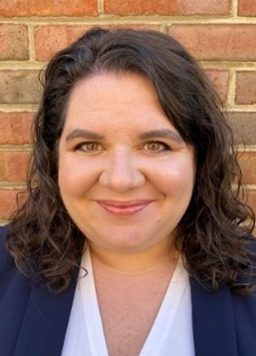
Diana Zuskov
Director, Market Planning/Strategy, Government Healthcare & Public Health
Lexis Nexis Risk Solutions
Diana Zuskov leads Market Planning for Government Healthcare at LexisNexis Risk Solutions where she’s responsible for healthcare and public health strategy across Federal, State, and Local government agencies. Diana is passionate about innovations at the intersection of Medicaid and public health and brings expertise in population health, health communication, health services research, and digital health and innovation. Prior to joining LexisNexis, she led Market Solutions for Medicaid & Public Sector markets at a health engagement company and built a portfolio of evidence-based, text messaging programs for underserved populations distributed by health plans, state agencies, and providers. Diana holds a Master’s in Public Health in Health Behavior from University of North Carolina at Chapel Hill and lives in Washington, DC with her French Bulldog Lola.
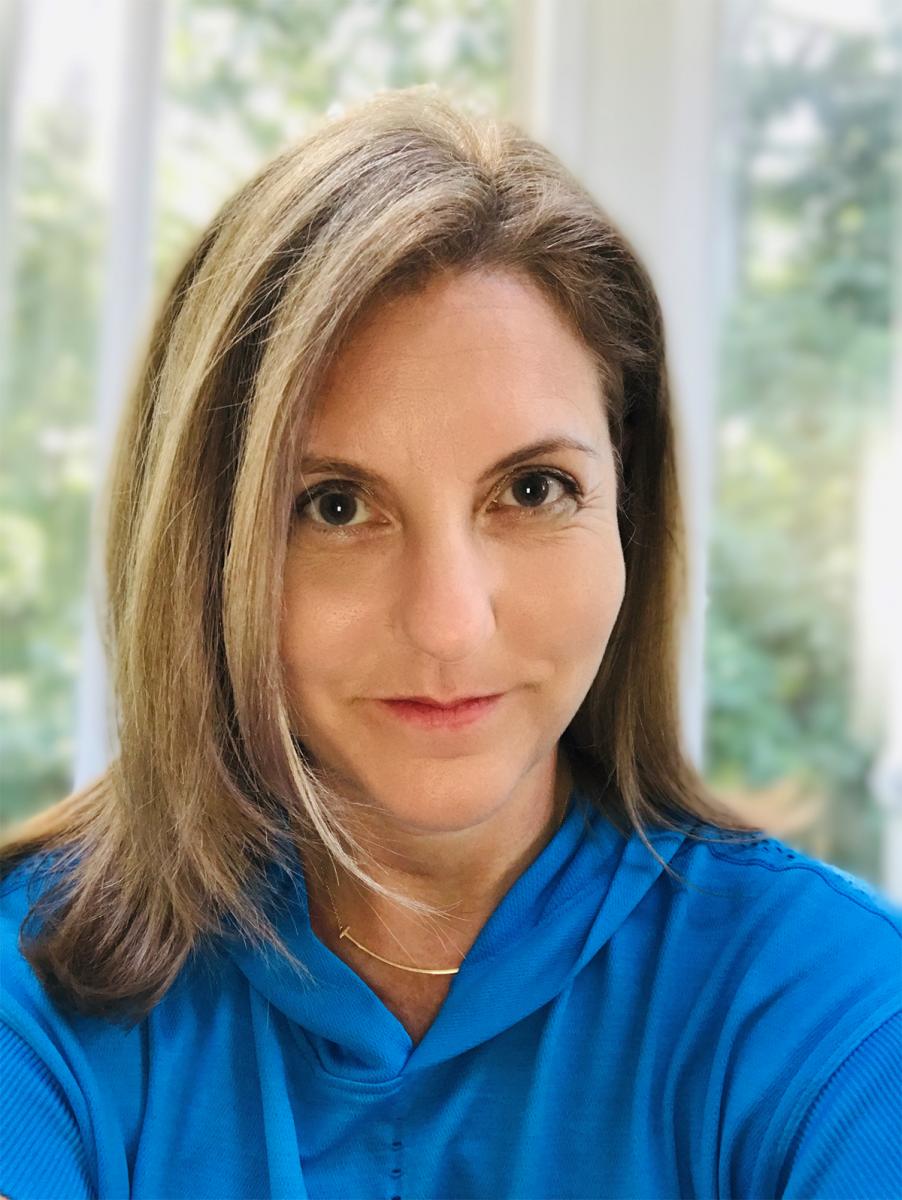
Jen Covich Bordenick
Chief Executive Officer
eHI
For over 20 years, Jennifer has focused on quality and innovative technology solutions to transform healthcare. As CEO, she provides leadership for research, education and advocacy components of eHealth Initiative and Foundation (eHI). Convening senior executives from every group in healthcare to discuss, identify, and share best practices that transform the delivery of healthcare. Focus areas: improving health and wellness through innovative solutions; interoperability; privacy concerns; artificial intelligence; payment models to support innovative care; and tech tools for chronic care. She led development of dozens of national surveys and published groundbreaking reports. As part of her work with the Foundation, she led grants with California Health Care Foundation, Commonwealth Fund, Aetna Foundation and Bristol Meyers Squibb Foundation. Jennifer is co-chair of the Federal HIT Policy Committee’s Strategy and Innovation Workgroup; member of the HL7 Board of Directors; and a member of the Diabetes Collaborative Stakeholder Panel. Jennifer is a faculty member for the MHA and MHIA graduate programs at George Washington University. Prior to joining eHI, Jennifer headed up the strategic marketing at OpenNetworks, Inc., focusing on security solutions for the healthcare industry. She led healthcare industry relations at MicroStrategy, Inc., focusing on data-mining solutions for the pharmaceutical and healthcare industry. She spent four years at the National Committee for Quality Assurance as Director of Policy and Product Development, helping develop national quality standards for healthcare organizations. Jennifer began her career at the George Washington University Hospital, Medical Center and Health Plan working on quality management initiatives, clinical pathways and healthcare administration. Jennifer earned a master's in Human Resource Development, completed coursework in health administration doctoral program at GWU, and resides in Maryland with her husband and two children.
This webinar is supported by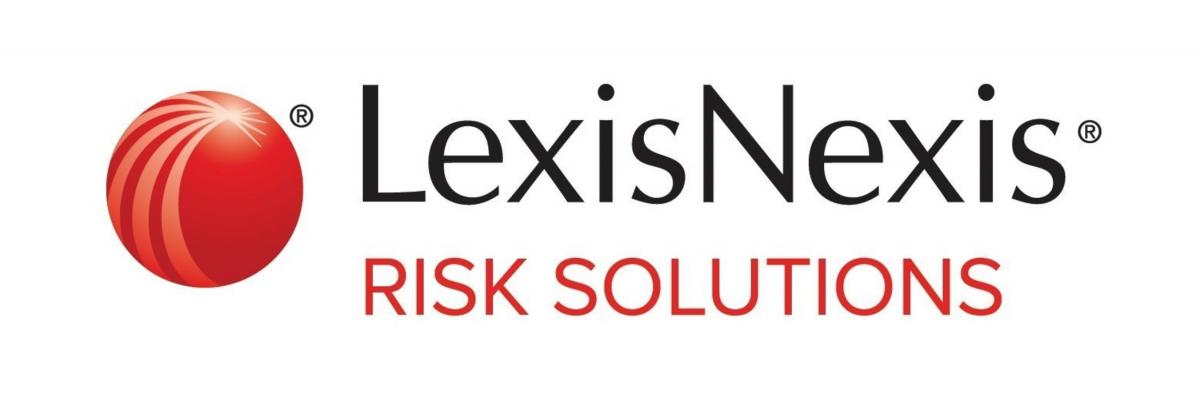
WEBINAR: Impact of Information Blocking Rules on Health Information Exchanges
Nearly one year ago, the Office of the National Coordinator for Health Information Technology (ONC) and the Centers for Medicare & Medicaid Services (CMS) released final regulations to implement information blocking provisions of the 21st Century Cures Act.
eHI Annual Meeting
eHI hosted its Annual Meeting from January 26-28th. Five panels discussed lessons learned, industry best practices, and how we move toward a more modern, technology-enabled, and equitable health care system. Panels of experts explored topics related to social determinants of health, health data privacy, policy and advocacy, and modern health care delivery.
For full biographies of panelists, click here.
Links to all videos below.
eHI CEO Jen Covich Bordenick Interviews Senator Catherine Cortez Masto (D-NV)
eHI was thrilled to host Senator Catherine Cortez Masto (D-NV) for a conversation on healthcare, data privacy, and the importance of federal policy to ensure transparency to the consumer.
Panel #1: TGI2021: Where Are We Heading This Year:
eHI CEO Jen Covich Bordenick was joined by outgoing Board Chair Dr. Susan Turney, President & CEO of Marshfield Clinic Health System, and incoming Board Chair Amy McDonough, Senior Vice President & General Manager of Fitbit Health Solutions. They discussed expectations for 2021, as well as wearable technology and a discussion on equality in healthcare providers.
"While attitudes have thankfully changed dramatically, we have not arrived at a fully equitable society."
- Dr. Susan Turney
Panel #2: Prioritizing Equality in COVID-19 Vaccine Distribution
eHI's Director of Strategy and Programs Wanneh Dixon joined Damika Barr, JD from Verily Life Sciences, Anna Basevich from Arcadia, J. Michael McGinnis, MD, MA, MPP from the National Academy of Medicine, and Diana Zuskov from LexisNexis Risk Solutions for a discussion on how to engage underserved communities in COVID-19 vaccine distribution and using data-driven approaches to close gaps in health equity.
"I think the biggest takeaway is that there is a lot of data out there and I think we're getting to the point where everyone is convinced data is important, but making it actionable and connecting it down to one individual that you can look at an entire data story for."
- Diana Zuskov
Panel #3: Virtual Care Delivery During COVID-19 and Beyond
eHI CEO Jen Covich Bordenick joined experts Saurabha Bhatnagar, MD of United Healthcare, Adam Pellegrini of CVS Health, and Roy Schoenberg, MD of Amwell. Panelists discussed how their organizations have scaled virtual care delivery during COVID-19 and how they envision the future of health care post-COVID-19.
"For the next generation of telehealth that we want to be known for it has to be built differently to allow for innovation of others to collaborate inside the telehealth encounters or surrounding the telehealth encounters."
- Dr. Roy Schoenberg
Panel #4: Protecting “Health-ish” Data: Balancing Innovation and Health Data Privacy
eHI's Vice President and Senior Counsel Alice Leiter joined Jodi Daniel, Partner at Crowell & Moring; Laura Hoffman, Assistant Direction of Federal Affairs at the AMA; and Liz Salmi, Senior Strategist, Research Communication at OpenNotes and Senior Multimedia Communications Director at Beth Israel Deaconess Medical Center. Panelists talked about the challenging balance of shoring up legal protections for the increasing amounts of non-HIPAA-covered health data, establishing consumer trust in new technologies, and encouraging innovation in health care and health tech.
"[With respect to the digital Covid contact tracing apps]... There was a great idea, a great need to try to supplement traditional contact tracing for public health purposes with the outbreak of Covid with digital apps and smartphone apps that could use different types of functionality on your phone ...to alert folks when they were exposed to Covid. Unfortunately, we saw with a lot of the early rollouts of those apps that people didn't trust what would happen to the information they provided."
- Laura Hoffman
Upcoming Webinar: Release of the Final Consumer Privacy Framework for Health Data. We are delighted to release our final proposal to shore up protections for non-HIPAA-covered health information and share our plans for phase 2 of our work. Please join us and our colleagues from the Center for Democracy and Technology on February 9 at 2:00.
Panel #5: Digital Health Policy: Have We Reached a Turning Point?
The last panel of the Annual Meeting was moderated by eHI’s Assistant Vice President of Policy, Catherine Pugh. Catherine was joined by Aashima Gupta, Director, Global Healthcare Strategy and Solutions at Google Cloud; Matthew Roman, Chief Digital Strategy Officer at Duke University Health System; and Dr. Mona Siddiqui, Senior Vice President, Clinical Strategy & Quality at Humana for a discussion on the impact of COVID-19 on health policy, lessons learned, and how we move forward to build a more effective, efficient, and equitable health care system.
“I think digital should have a level playing field and I think there’s often been just a much higher bar to get some things approved than in-person care, so my hope is that people begin to see last year as a proof point of what’s possible and continue to enable greater access to care for people through technology and through digital solutions.”
- Dr. Mona Siddiqui
WEBINAR: New Strategies for Patient Engagement: Lessons Learned During the Pandemic
Are your patients and members so concerned about contracting COVID-19 that they are afraid to seek preventative care? Between deferred care, COVID-19 vaccine engagement, and the need to illuminate and address socioeconomic challenges and health equity, patient engagement presents new challenges as move into 2021. Do your current strategies measure up?
Please join us Lurie Children’s Pediatric Partners, an integrated network in Chicago, and Community Health Plan of Washington, a nonprofit health plan supporting Medicaid and Medicare populations, as they share their experiences and lessons learned from 2020, and discuss challenges ahead.
Both organizations knew early in the spring of 2020 that this year would make patient engagement difficult. They took this opportunity to rethink how they engaged with their populations by taking the lead in educating patients about the new public health threat, offering resources, and sharing guidance on preventative care.
The webinar will look at:
- Tools to support patients as the pandemic continues
- Engaging and educating patients around COVID-19 vaccinations
- Closing preventative care gaps and addressing deferred care
- Advancing health equity by addressing SDOH at the point of care
REGISTRATION NOTE: This webinar will be recorded and made available to registrants should the timing with Inauguration Day pose a conflict.
Speakers:

Anna Basevich
VP, Customer Success
Arcadia
Anna leads customer success at Arcadia, working with customers to build out tailored population health strategies that leverage Arcadia’s analytics and workflow tools. She oversees the execution of Arcadia’s strategic partnership programs, which expand the transformative impact of the Arcadia Analytics platform. Anna recently led the expansion of Arcadia’s customer training program to enable healthcare organizations to accelerate their value-based care outcomes.
Anna has worked with Arcadia customers – including health plans, ACOs, independent physician groups, IDNs, and life sciences organizations – across the country to develop and execute strategies to succeed in value-based care. She has deep experience supporting healthcare leaders as they implement effective enterprise-level programs to improve quality, manage cost and utilization, and drive accurate risk-adjusted payments. She leads and mentors Arcadia teams to help provider networks and health plan customers roll out Arcadia’s tools in an effective and targeted manner to end users and drive platform adoption and change management.
Anna has managed implementations and client services work at Arcadia and at Deloitte Consulting; her past work has included numerous programs around health system quality measurement and improvement under ACO and risk-based contracts, initiatives aimed at improving accuracy and completeness of documentation for risk adjustment, state health insurance exchange implementations, Patient Centered Medical Home transformations, Health Information Exchange strategy and analytics, and large-scale health IT implementations.
Anna received her Bachelor’s degree from Wellesley College.

Mackenzie M. Bisset, MSPH, MS, MBA
Director of Operations
Lurie Children’s Pediatric Partners
Mackenzie Bisset, MSPH, MS, MBA is currently the Director of Operations at Lurie Children’s Pediatric Partners where she oversees and manages the Clinically Integrated Network. She helps define the strategy of the CIN, and sets annuals goals; she hires and manages staff; manages vendor partnerships and subcontracts; implemented software to aggregate clinical data and maintain data feeds across the CIN; leads all marketing and communication efforts; and developed the CIN Quality and Safety Plan. She also helped negotiate and oversee the implementation of two Medicaid and three commercial VBCs totaling 140,000 lives and roughly $300 million in medical spend and has successfully achieved savings under these value-based arrangements.
Prior to directing the CIN, Ms. Bisset was the Clinical Quality Consultant for the Care Coordination Entity (CCE) at Lurie Children’s. As part of this role, she also identified opportunities for co-management between specialists and pediatricians; developed learning collaboratives to reduce costs; and improved the appropriateness of referrals while improving outcomes. Another component of her role was developing clinical care guidelines and quality and utilization metrics to ensure compliance with state requirements as well as identifying opportunities for performance improvement.
Additional previous titles include Accreditation Compliance/Health Services Accreditation Surveyor for the National Commission on Correctional Health care where she evaluated the health care services provided in jails and prisons across the United States. As a Consultant for Hubbert Systems Consulting, she provided subject matter advice on the structures and processes of health care delivery to clients, designed and implemented Quality Improvement and Patient Safety programs and more.

Jen Covich Bordenick
CEO
eHealth Initiative and Foundation
For over 20 years, Jennifer has focused on quality and innovative technology solutions to transform healthcare. As CEO, she provides leadership for research, education and advocacy components of eHealth Initiative and Foundation (eHI). Convening senior executives from every group in healthcare to discuss, identify, and share best practices that transform the delivery of healthcare. Focus areas: improving health and wellness through innovative solutions; interoperability; privacy concerns; artificial intelligence; payment models to support innovative care; and tech tools for chronic care. She led development of dozens of national surveys and published groundbreaking reports. As part of her work with the Foundation, she led grants with California Health Care Foundation, Commonwealth Fund, Aetna Foundation and Bristol Meyers Squibb Foundation. Jennifer is co-chair of the Federal HIT Policy Committee’s Strategy and Innovation Workgroup; member of the HL7 Board of Directors; and a member of the Diabetes Collaborative Stakeholder Panel. Jennifer is a faculty member for the MHA and MHIA graduate programs at George Washington University. Prior to joining eHI, Jennifer headed up the strategic marketing at OpenNetworks, Inc., focusing on security solutions for the healthcare industry. She led healthcare industry relations at MicroStrategy, Inc., focusing on data-mining solutions for the pharmaceutical and healthcare industry. She spent four years at the National Committee for Quality Assurance as Director of Policy and Product Development, helping develop national quality standards for healthcare organizations. Jennifer began her career at the George Washington University Hospital, Medical Center and Health Plan working on quality management initiatives, clinical pathways and healthcare administration. Jennifer earned a master's in Human Resource Development, completed coursework in health administration doctoral program at GWU, and resides in Maryland with her husband and two children.
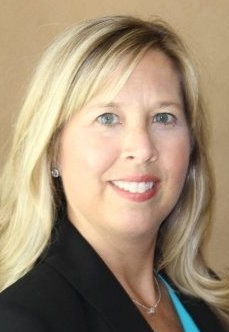
Jennifer Polello, MHPA, PCMH CCE, MCHES
Senior Director of Quality and Population Health
Community Health Plan of Washington
Jennifer has over 20 years of extensive experience across the healthcare continuum in the areas of public health, chronic disease management, quality improvement, health policy, population health management and clinical informatics. She has exercised this experience from several points of view across the health care environment and has demonstrated expert facilitation skills in leading teams of clinicians, nurses and physicians through the transformation process of patient care in the ambulatory setting. Jennifer has worked on regional health information exchange projects and assisted in the design of a clinical decision support tool for patients with type 2 diabetes. She has also served as an Adjunct Clinical Assistant Professor mentoring PharmD candidates at Washington State University. Jennifer is currently leveraging her knowledge and expertise as the Senior Director of Quality and Population Health at Community Health Plan of Washington where she leads the company’s quality improvement strategies, population health and clinical data integration programs across the Network of 20 community health centers that operate more than 130 clinics across the state.
Support for this webinar brought to you by:

